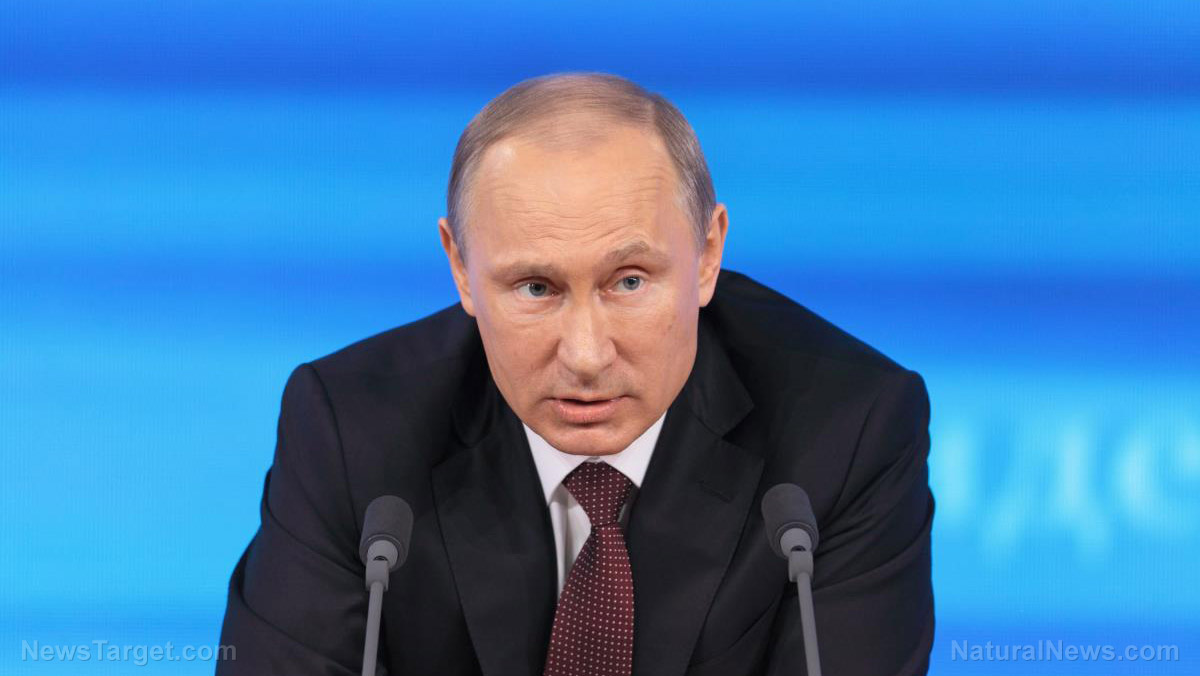
Russia's decision to withdraw from the Black Sea grain deal, an agreement protecting the ships transporting the agricultural products of Ukraine amid the ongoing war, left millions of people vulnerable to the global impact of rising costs. The continuous attacks on Ukrainian ports and grain infrastructure, coupled with supply disruptions, have led to increased volatility in the prices of wheat and corn. (Related: Wheat prices soar after Russia allows UN-brokered Black Sea grain deal to expire.)
According to the FAO Food Price Index, global prices of commonly traded food commodities rose by 1.3 percent in July compared to June, primarily driven by higher costs for rice and vegetable oil. Similarly, vegetable oil prices recorded a 12.1 percent increase in July following seven consecutive months of decline.
The FAO associated this increase with a 15 percent spike in sunflower oil prices stemming from renewed uncertainties about supplies following the dissolution of the grain deal.
Meanwhile, India has banned exports of specific varieties of non-Basmati white rice since July due to an earlier-than-expected El Niño season. As a result, rice prices soared by 2.8 percent in July compared to the previous month, marking an increase of 19.7 percent since the beginning of the year – the highest levels observed since September 2011.
Extreme weather events have also contributed to rising costs. Heatwaves, wildfires and other weather-related catastrophes are causing not only direct damage to crops but also crippling labor and transportation in the food supply chain.
Suzi Kerr, the chief economist of the Environmental Defense Fund, explained in an article how the ripple effects of these events are felt in warehouses and on roads, leading to further price hikes. The labor shortages and supply chain disruptions are projected to lead to a significant reduction in global working hours, with an estimated loss of 80 million full-time jobs and a $2.4 trillion economic hit by 2030.
Higher food prices may persist, chief economists say
Africa, the Middle East and Asia, where millions are struggling with hunger, are badly affected by the results of political wars and climate disruptions. Countries in these regions heavily depend on food imports from major producers like Russia and Ukraine. Therefore, these countries need to deal with hunger and limited resources for the foreseeable future.
Maximo Torero, the chief economist of FAO, stated that the conflict, export restrictions or weather-induced production shortfalls can lead to supply and demand imbalances. The consequences of such imbalances can be severe, leading to a "lack of food access because of increasing prices and potential food insecurity."
Contrary to expectations, the relief observed in global food commodity prices on the world markets has not translated into reduced costs for consumers, particularly in developing countries. Torero emphasized that the disparity between global food commodity prices and local market prices persists, driven in part by currency fluctuations.
Many developing nations have seen their currencies weaken against the U.S. dollar, which is a key currency for purchasing essential food commodities such as grain and vegetable oil.
"The transmission from lower commodity prices to the final consumer prices, which include other components like logistics and other products we produce — bread, for example — is not yet happening in developing countries," Torero explained. In short, the worst is yet to come. The shift back to higher food commodity prices could further delay the process of price rollback.
In a separate question-and-answer session on August 7, Bank of England Chief Economist Huw Pill acknowledged that food price inflation has persisted longer than anticipated.
Similar to Torero's statement, Pill cited the conflict in Ukraine and disruptions to grain exports from the Black Sea region as factors in the prolonged price pressures. The bank economist also mentioned that some businesses had locked in higher prices amidst uncertainty, particularly during the initial stages of the Ukraine conflict.
Although Pill highlighted that global prices for certain commodities were beginning to decline, he warned that this might not lead to an immediate reduction in consumer prices.
"Unfortunately the days of seeing food prices fall, that does seem to be something that we may not be seeing for a little while yet, if in the future at all."
The latest news about the war in Ukraine can be found at WWIII.news.
Watch this video to learn more about the Ukrainian attack on the Crimean Bridge and its connection to the end of the grain deal.
More related stories:
Food shortage simulation predicts 400% SURGE in food prices by 2030.
Russia halts Black Sea grain deal but denies its connection to Ukrainian sea drone attack.
High prices, low supply forcing many countries to BAN food exports.
Food supply woes persist: Grain shippers delay deliveries amid barge quagmire.
Sources include:
Please contact us for more information.





















